EARTH OCEAN FOOD SYSTEMS (ETHOS), Inc. is a developing, international non-profit organized to accelerate directed actions worldwide that advance education and applied science in ecological aquaculture and regenerative agriculture systems that are socially and environmentally inclusive and just. ETHOS is proposed to work at the nexus of social and climate change in aquatic food systems and their integration with terrestrial food systems, renewable energies, soil and water conservation, environmental conservation, and protection. ETHOS has a special mission to assist the next generation of leaders working in food production and justice. ETHOS plans to prioritize with partners global to local direct actions in sustainable food systems that contribute directly to initiatives in peace, anti-racism, and decolonization. ETHOS is committed to inclusive and consensus actions that support the voices and participation of people who represent the world’s spectacular human diversity and indigenous peoples.
ORGANIZATIONAL DEVELOPMENT CONSULTANTS
The work plan for the development leaders will be to lead the organizational development and strategic planning of ETHOS, to develop partnerships and raising funds. Cristina and Tamara will be working with the development advisors to assist in formation of the Board of Directors, contacting potential partners, prospecting funding opportunities, developing projects, and organizing promotional events/meetings.
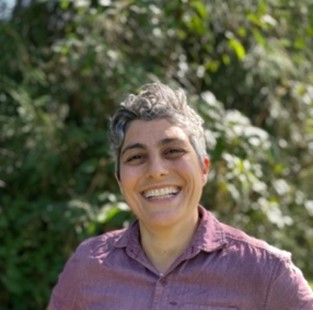 Cristina Sandolo, M.A. (Ocean Food Systems, University of New England), has worked in food justice and community food systems for 14 years, leading organizations through phases of growth and change, most recently led Real Food Generation through a time of organizational transition. Previously, she transformed the Green Village Initiative into a food justice organization committed to antiracism, working to develop an Urban Agriculture Master Plan for the City of Bridgeport. At Wholesome Wave, she coordinated a national network of partners implementing farmers market incentive programs and fruit and vegetable prescription programs. Her master’s linked barriers to oyster aquaculture in the Mid-Atlantic to historic systems of oppression and racism, resulting in equity-based recommendations for industry managers to use to grow a more diverse population of aquaculture entrepreneurs. As Grant Program Manager at Farm Aid, Cristina is working to support organizations that keep farmers on the land.
Cristina Sandolo, M.A. (Ocean Food Systems, University of New England), has worked in food justice and community food systems for 14 years, leading organizations through phases of growth and change, most recently led Real Food Generation through a time of organizational transition. Previously, she transformed the Green Village Initiative into a food justice organization committed to antiracism, working to develop an Urban Agriculture Master Plan for the City of Bridgeport. At Wholesome Wave, she coordinated a national network of partners implementing farmers market incentive programs and fruit and vegetable prescription programs. Her master’s linked barriers to oyster aquaculture in the Mid-Atlantic to historic systems of oppression and racism, resulting in equity-based recommendations for industry managers to use to grow a more diverse population of aquaculture entrepreneurs. As Grant Program Manager at Farm Aid, Cristina is working to support organizations that keep farmers on the land.
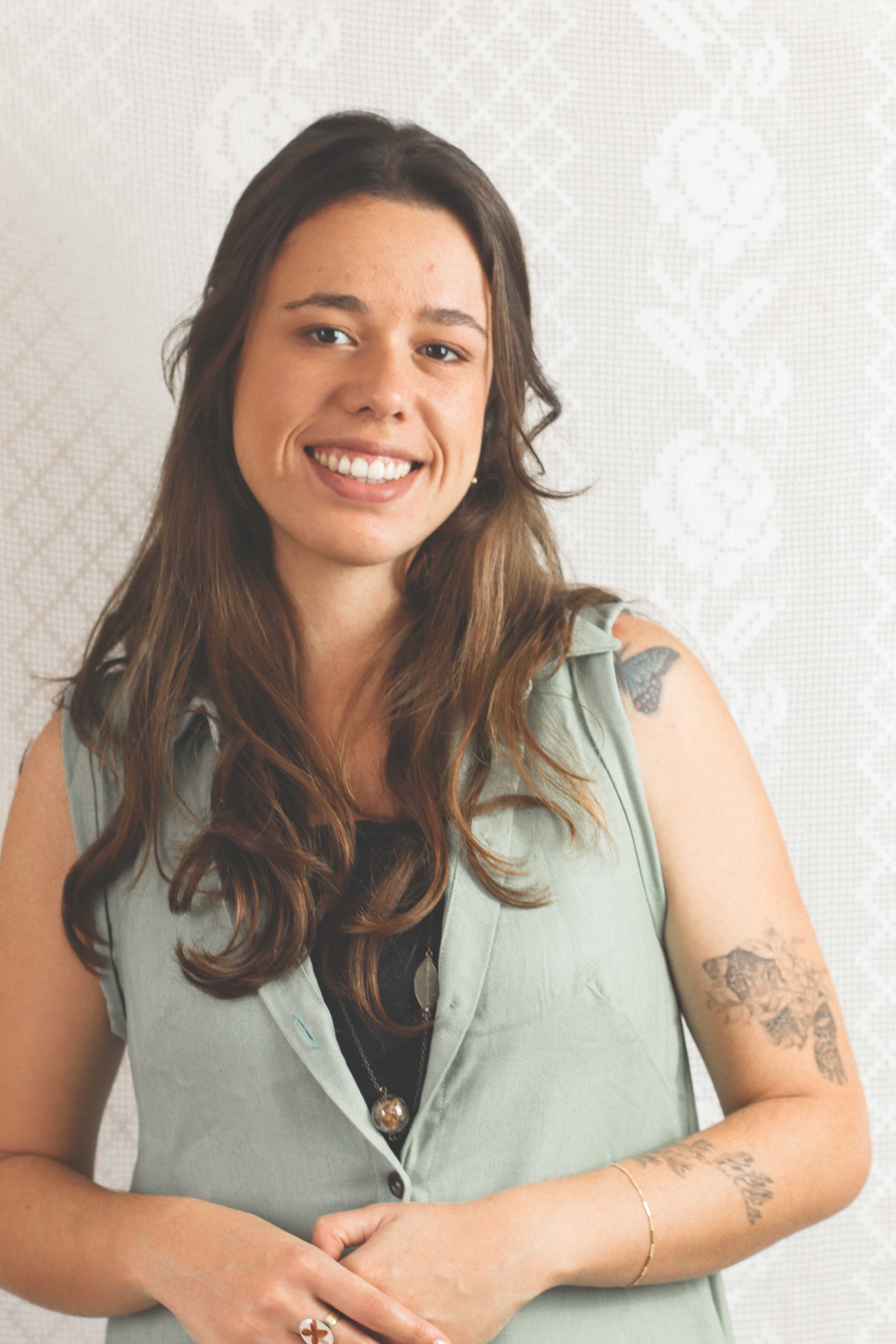 Tamara Fonseca de Almeida, Ph.D. (São Paulo State University) is a biologist and coastal manager with an M.Sc. in Aquatic Biodiversity and a Ph.D. in Aquaculture. In her previous research Tamara investigated how the aquaculture of indigenous fish can promote the sustainable development of rural communities in Brazil, and how these systems consume and restore natural resources. She was a post-doctoral scholar in the European Union Aquavitae Program assessing the sustainability of low-trophic and Integrated Multi-Trophic Aquaculture (IMTA) systems. Tamara is a researcher in the “Oceanos de Plástico” Project assessing systemic solutions for marine plastic litter. She was involved in projects for SOS Mata Atlântica Foundation and the Forest Code Observatory mapping and linking initiatives for forest conservation and restoration.
ORCID |
LinkedIn
Tamara Fonseca de Almeida, Ph.D. (São Paulo State University) is a biologist and coastal manager with an M.Sc. in Aquatic Biodiversity and a Ph.D. in Aquaculture. In her previous research Tamara investigated how the aquaculture of indigenous fish can promote the sustainable development of rural communities in Brazil, and how these systems consume and restore natural resources. She was a post-doctoral scholar in the European Union Aquavitae Program assessing the sustainability of low-trophic and Integrated Multi-Trophic Aquaculture (IMTA) systems. Tamara is a researcher in the “Oceanos de Plástico” Project assessing systemic solutions for marine plastic litter. She was involved in projects for SOS Mata Atlântica Foundation and the Forest Code Observatory mapping and linking initiatives for forest conservation and restoration.
ORCID |
LinkedIn
DEVELOPMENT ADVISORS
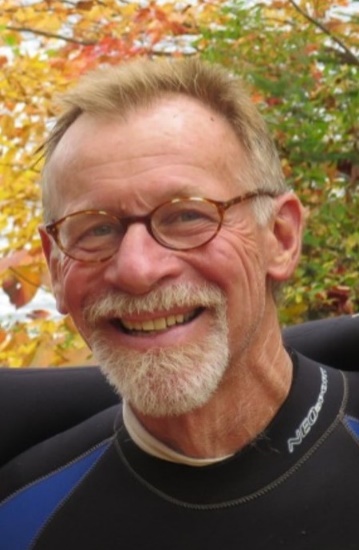 Joseph Kiefer, M.A. (Social Ecology, Goddard College) lives in Central Vermont where he co-owns and co-manages the White Dove Herbal Sanctuary together with his wife, Amy Goodman Kiefer. Joseph has spent his career working on food systems changes at the school, town, and statewide levels. He is the co-author of Digging Deeper, a comprehensive guide to integrating youth gardens into schools and communities. He co-founded the Vermont Food Bank in the 1980’s and has worked for decades on the pioneering Vermont FEED (Food Education Every Day) programs. Joseph currently sits on 3 non-profit Board of Directors in Vermont. Read about Joseph in the bridge Hunger in Vermont: Plenty of Food, but Still Falling Short.
Joseph Kiefer, M.A. (Social Ecology, Goddard College) lives in Central Vermont where he co-owns and co-manages the White Dove Herbal Sanctuary together with his wife, Amy Goodman Kiefer. Joseph has spent his career working on food systems changes at the school, town, and statewide levels. He is the co-author of Digging Deeper, a comprehensive guide to integrating youth gardens into schools and communities. He co-founded the Vermont Food Bank in the 1980’s and has worked for decades on the pioneering Vermont FEED (Food Education Every Day) programs. Joseph currently sits on 3 non-profit Board of Directors in Vermont. Read about Joseph in the bridge Hunger in Vermont: Plenty of Food, but Still Falling Short.
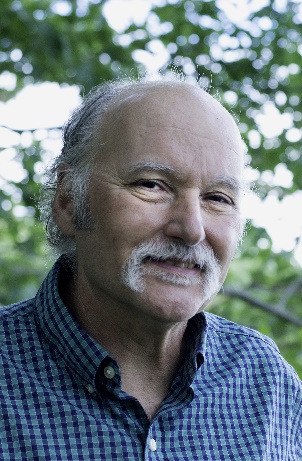 Barry Antonio Costa-Pierce (“BCP”) Ph.D. (Oceanography, University of Hawai’i; Hon.Doc.Sci., University of Gothenburg)
ORCID |
Google Scholar |
Loop |
LinkedIn
BCP has served as a fisheries and aquaculture research scientist and policy expert for international education and research organizations, banks, and marine industries throughout the World, while living long-term in Asia, the Pacific Islands, Africa, the Americas, and Europe. BCP an Emeritus Professor at the University of Rhode Island and University of New England. He currently is a Professor II in the Faculty of Biosciences & Aquaculture at Nord University, Bodø, Norway and President/CEO of Ecological Aquaculture, LLC. He is a proud Portuguese American who now splits time between Europe and the USA working in sustainable aquaculture R&D and governance for marine and freshwater species in tropical, desert, and temperate zones.
Barry Antonio Costa-Pierce (“BCP”) Ph.D. (Oceanography, University of Hawai’i; Hon.Doc.Sci., University of Gothenburg)
ORCID |
Google Scholar |
Loop |
LinkedIn
BCP has served as a fisheries and aquaculture research scientist and policy expert for international education and research organizations, banks, and marine industries throughout the World, while living long-term in Asia, the Pacific Islands, Africa, the Americas, and Europe. BCP an Emeritus Professor at the University of Rhode Island and University of New England. He currently is a Professor II in the Faculty of Biosciences & Aquaculture at Nord University, Bodø, Norway and President/CEO of Ecological Aquaculture, LLC. He is a proud Portuguese American who now splits time between Europe and the USA working in sustainable aquaculture R&D and governance for marine and freshwater species in tropical, desert, and temperate zones.
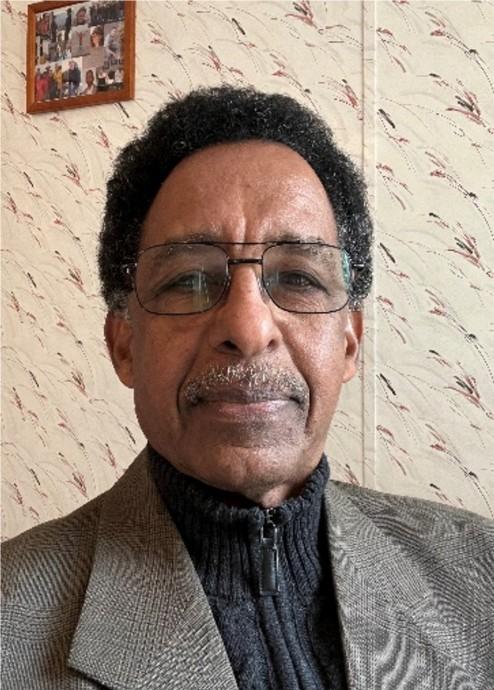 Kifle W. Hagos, Ph.D. (Environmental Science & Fisheries, University of Rhode Island) lives in Spotsylvania, Virginia, USA where he works as an Earth Science teacher in the Spotsylvania County Public School system and fisheries/aquaculture consultant. He was an Adjunct Professor at Roger Williams University in Bristol, RI for seven years teaching core science lectures and labs. As an international fisheries/aquaculture consultant he worked for the URI Coastal Resources Center completing an EU project for an NGO in Nairobi, Kenya on illegal (IUU) fishing in the territorial waters of Somalia traveling to Kenya and northern Somalia to recruit, train professionals and coordinate project activities. Prior to graduate school, Kifle served for ten years at the Ministry of Marine Resources in Eritrea, East Africa in various positions, including four years as Director General of Fisheries Resources Management. He oversaw a pioneering large scale integrated seawater farming system in Eritrea that included shrimp/tilapia aquaculture and Salicornia farming using seawater irrigation and wetlands creation. Kifle speaks six languages. He has expertise in integrated coastal ecosystems management, sustainable resource use in seafood production systems using life cycle analysis, and aquaculture development in arid coastal regions.
Kifle W. Hagos, Ph.D. (Environmental Science & Fisheries, University of Rhode Island) lives in Spotsylvania, Virginia, USA where he works as an Earth Science teacher in the Spotsylvania County Public School system and fisheries/aquaculture consultant. He was an Adjunct Professor at Roger Williams University in Bristol, RI for seven years teaching core science lectures and labs. As an international fisheries/aquaculture consultant he worked for the URI Coastal Resources Center completing an EU project for an NGO in Nairobi, Kenya on illegal (IUU) fishing in the territorial waters of Somalia traveling to Kenya and northern Somalia to recruit, train professionals and coordinate project activities. Prior to graduate school, Kifle served for ten years at the Ministry of Marine Resources in Eritrea, East Africa in various positions, including four years as Director General of Fisheries Resources Management. He oversaw a pioneering large scale integrated seawater farming system in Eritrea that included shrimp/tilapia aquaculture and Salicornia farming using seawater irrigation and wetlands creation. Kifle speaks six languages. He has expertise in integrated coastal ecosystems management, sustainable resource use in seafood production systems using life cycle analysis, and aquaculture development in arid coastal regions.
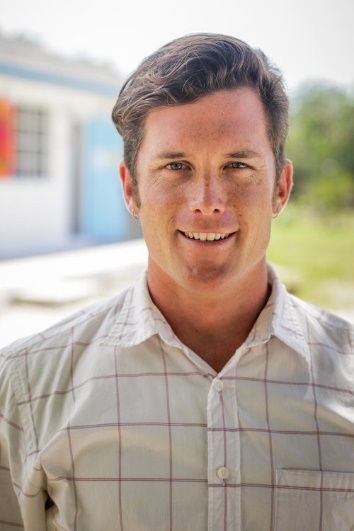 Micah Conkling, M.A. (Professional Science Masters, Ocean Food Systems, University of New England) is a marine-science researcher, aquaculturalist, and educator from midcoast Maine. His graduate research demonstrated policy avenues and commercial strategies through which ocean-farming stakeholders can promote sustainable small-scale mariculture development, and he has presented these results internationally. He has been a teacher at the secondary-school levels in the United States and The Bahamas, with transdisciplinary focuses on expeditionary learning, social license to operate, and food systems. His work more recently at the Hurricane Island Center for Science and Leadership included multitrophic ocean farm management, community-scale aquaculture development, and classroom-scale cultivation of Saccharina latissima kelp sporulation and out-planting. His experience also includes commercial Crassostrea virginica oyster farming, multinational fisheries conservation campaigns, and years of small-island community development projects and lobster fishing. Micah is expanding his aquaculture work into marine nutrient bioprospecting to incorporate seaweed bioremediation into climate change adaptation projects by diversifying municipalities and working-waterfront communities.
Micah Conkling, M.A. (Professional Science Masters, Ocean Food Systems, University of New England) is a marine-science researcher, aquaculturalist, and educator from midcoast Maine. His graduate research demonstrated policy avenues and commercial strategies through which ocean-farming stakeholders can promote sustainable small-scale mariculture development, and he has presented these results internationally. He has been a teacher at the secondary-school levels in the United States and The Bahamas, with transdisciplinary focuses on expeditionary learning, social license to operate, and food systems. His work more recently at the Hurricane Island Center for Science and Leadership included multitrophic ocean farm management, community-scale aquaculture development, and classroom-scale cultivation of Saccharina latissima kelp sporulation and out-planting. His experience also includes commercial Crassostrea virginica oyster farming, multinational fisheries conservation campaigns, and years of small-island community development projects and lobster fishing. Micah is expanding his aquaculture work into marine nutrient bioprospecting to incorporate seaweed bioremediation into climate change adaptation projects by diversifying municipalities and working-waterfront communities.
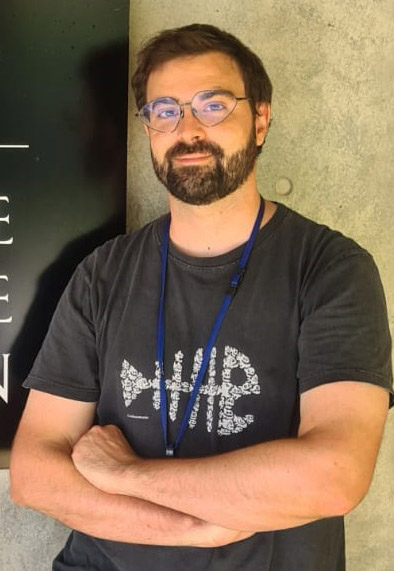 Jonathan A.C. Roques, Ph.D. (Biology, Radboud University Nijmegen) is a scientist originally from France working now in Sweden at the University of Gothenburg and SWEMARC, the Swedish Mariculture Research Center. He started his aquaculture journey doing Master’s and PhD degrees in collaboration between Radboud University Nijmegen and Wageningen University & Research, Netherlands examining animal health and welfare in aquaculture, work he continues at SWEMARC. Jonathan is also involved in the sustainable development of closed aquaculture containment systems in his collaborative project MARTINIS (MARiculture Technical INnovations In Sweden) together with the University of Hiroshima, Japan. He also shares his passion and knowledge for aquaculture with the new generation of aquaculture leaders as an instructor in the Nordic Master's Program in Sustainable Production and Utilization of Marine Bioresources
(MAR-BIO).
Jonathan A.C. Roques, Ph.D. (Biology, Radboud University Nijmegen) is a scientist originally from France working now in Sweden at the University of Gothenburg and SWEMARC, the Swedish Mariculture Research Center. He started his aquaculture journey doing Master’s and PhD degrees in collaboration between Radboud University Nijmegen and Wageningen University & Research, Netherlands examining animal health and welfare in aquaculture, work he continues at SWEMARC. Jonathan is also involved in the sustainable development of closed aquaculture containment systems in his collaborative project MARTINIS (MARiculture Technical INnovations In Sweden) together with the University of Hiroshima, Japan. He also shares his passion and knowledge for aquaculture with the new generation of aquaculture leaders as an instructor in the Nordic Master's Program in Sustainable Production and Utilization of Marine Bioresources
(MAR-BIO).
ORCID | Google Scholar
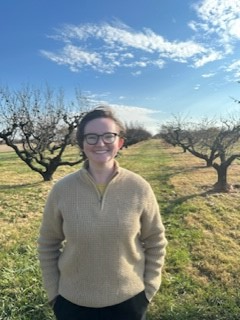 Rebekah Woodburn, M.A. (Professional Science Masters, Ocean Food Systems, University of New England). Rebekah received a bachelor’s degree in biology with a focus on molecular biology and a minor in chemistry from Eckerd College in St. Petersburg, Florida. They got their start in food systems joining the Young Adult Volunteer Program in Boston, MA where the theme was food justice. Rebekah worked in a local, choice food pantry and coordinated a community garden to supply fresh produce to the food pantry, continuing afterwards to work at the food pantry as well as working on an organic farm in Lincoln, MA. Massachusetts. During Ocean Food Systems master’s program, Rebekah worked on leasing systems for shellfish aquaculture focusing on Florida’s Aquaculture Use Zones and learning the perspectives of shellfish farmers within those leases. They now work with the Florida Department of Agriculture and Consumer Services, Division of Aquaculture as a Biological Scientist IV in the Education and Development Program.
Rebekah Woodburn, M.A. (Professional Science Masters, Ocean Food Systems, University of New England). Rebekah received a bachelor’s degree in biology with a focus on molecular biology and a minor in chemistry from Eckerd College in St. Petersburg, Florida. They got their start in food systems joining the Young Adult Volunteer Program in Boston, MA where the theme was food justice. Rebekah worked in a local, choice food pantry and coordinated a community garden to supply fresh produce to the food pantry, continuing afterwards to work at the food pantry as well as working on an organic farm in Lincoln, MA. Massachusetts. During Ocean Food Systems master’s program, Rebekah worked on leasing systems for shellfish aquaculture focusing on Florida’s Aquaculture Use Zones and learning the perspectives of shellfish farmers within those leases. They now work with the Florida Department of Agriculture and Consumer Services, Division of Aquaculture as a Biological Scientist IV in the Education and Development Program.
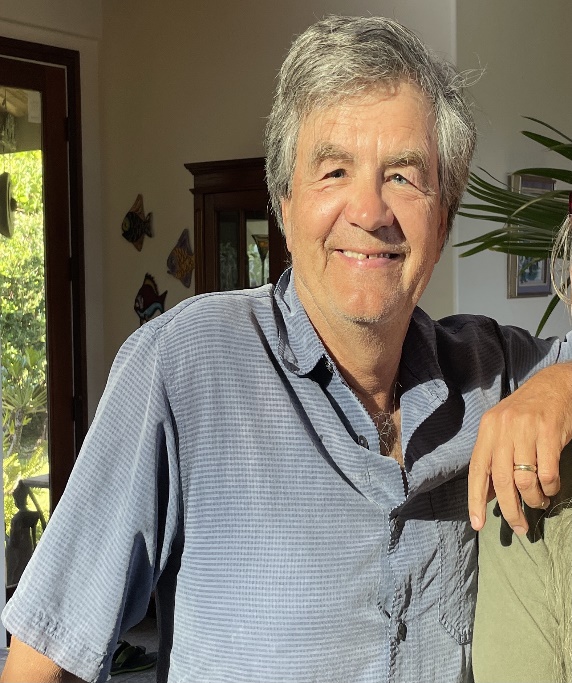 Page Nelson, B.A. (Anthropology, Yale University) lives in Berkeley, California, USA working as a project management consultant. He has assisted numerous business startups and organizational leaders on strategy and tactics, helping to promote effective communication, consensus building, and teamwork. Page is a board member of Asociacion ANAI, an internationally acclaimed NGO fostering and promoting sustainable development and community-based conservation in Costa Rica’s southeastern Talamanca region. In 2002, ANAI and its grassroots partners were honored with the prestigious United Nations Equator Prize recognizing "extraordinary accomplishment in reducing poverty in the tropics through the conservation and sustainable use of biodiversity in a World Heritage Area." Page was a founding partner of Shelterbelt, Inc., an ecological design, building and development firm. He also directed the Integral Urban House (IUH) in Berkeley, a pioneering organization that completed applied research on resource-conserving life-support systems (food, energy, shelter, water and waste management) to make cities more ecologically sustainable and healthy places to live, and one of first demonstrations of urban-scale “green” building technology. Results of the IUH were shared with thousands of visitors and through its many publications, including The Integral Urban House: Self-Reliant Living in the City (Sierra Club Books).
Page Nelson, B.A. (Anthropology, Yale University) lives in Berkeley, California, USA working as a project management consultant. He has assisted numerous business startups and organizational leaders on strategy and tactics, helping to promote effective communication, consensus building, and teamwork. Page is a board member of Asociacion ANAI, an internationally acclaimed NGO fostering and promoting sustainable development and community-based conservation in Costa Rica’s southeastern Talamanca region. In 2002, ANAI and its grassroots partners were honored with the prestigious United Nations Equator Prize recognizing "extraordinary accomplishment in reducing poverty in the tropics through the conservation and sustainable use of biodiversity in a World Heritage Area." Page was a founding partner of Shelterbelt, Inc., an ecological design, building and development firm. He also directed the Integral Urban House (IUH) in Berkeley, a pioneering organization that completed applied research on resource-conserving life-support systems (food, energy, shelter, water and waste management) to make cities more ecologically sustainable and healthy places to live, and one of first demonstrations of urban-scale “green” building technology. Results of the IUH were shared with thousands of visitors and through its many publications, including The Integral Urban House: Self-Reliant Living in the City (Sierra Club Books).
 Roger Jacobs is a dedicated technology consultant based on the Hawaiian island of Kaua’i. With decades of experience in technology consulting and a background in healthcare, Roger brings a unique perspective to his passion for food security on small islands like Kaua`i. Raised with a strong foundation in science education, Roger is driven by the belief that ensuring food security is essential for the well-being of island communities. He is currently in the initial stages of developing a cooperation between a hillside agricultural operation and a coastal aquaculture facility, modeled after the Hawaiian ahupua'a land use system. This collaboration aims to strengthen local food production and enhance the island's resilience in the face of food-related challenges. Roger's work reflects a deep-rooted desire to contribute to a more sustainable and resilient future for the people and environment of Kaua'i, and he looks forward to serving this cause into the future
Roger Jacobs is a dedicated technology consultant based on the Hawaiian island of Kaua’i. With decades of experience in technology consulting and a background in healthcare, Roger brings a unique perspective to his passion for food security on small islands like Kaua`i. Raised with a strong foundation in science education, Roger is driven by the belief that ensuring food security is essential for the well-being of island communities. He is currently in the initial stages of developing a cooperation between a hillside agricultural operation and a coastal aquaculture facility, modeled after the Hawaiian ahupua'a land use system. This collaboration aims to strengthen local food production and enhance the island's resilience in the face of food-related challenges. Roger's work reflects a deep-rooted desire to contribute to a more sustainable and resilient future for the people and environment of Kaua'i, and he looks forward to serving this cause into the future
The ETHOS office in Maine and 2 ha family farm are located about 1 km inland from the North Atlantic Ocean. ETHOS recognizes it is located on lands of the Sokoki Wabanaki Nation whose sovereign rights were stolen and sacred sites desecrated by colonialism, racism, and hatred. ETHOS recognizes the Sokoki and other Wabanaki Nations (Passamaquoddy, Penobscot, Maliseet, Mi’kmaq) as distinct, sovereign entities with self-governance and self-determination. Our partner in Hawai’i, Kaua’i Sea Farms, is an indigenous organization that stewards sacred Hawaiian lands on the island of Kaua’i. ETHOS recognizes the Hawaiian Kingdom as a sovereign, independent nation, and that the United States is illegally occupying Hawai’i, to which United States government has formally agreed. In 1993, the United States Congress admitted its wrongdoing in the Apology Resolution which was signed by President William Jefferson Clinton on the 100th anniversary of the overthrow of the Hawaiian government by the United States. The Apology Resolution stated that the Hawaiian government never relinquished its sovereignty, and the Hawaiian Kingdom was illegally overthrown by the United States.
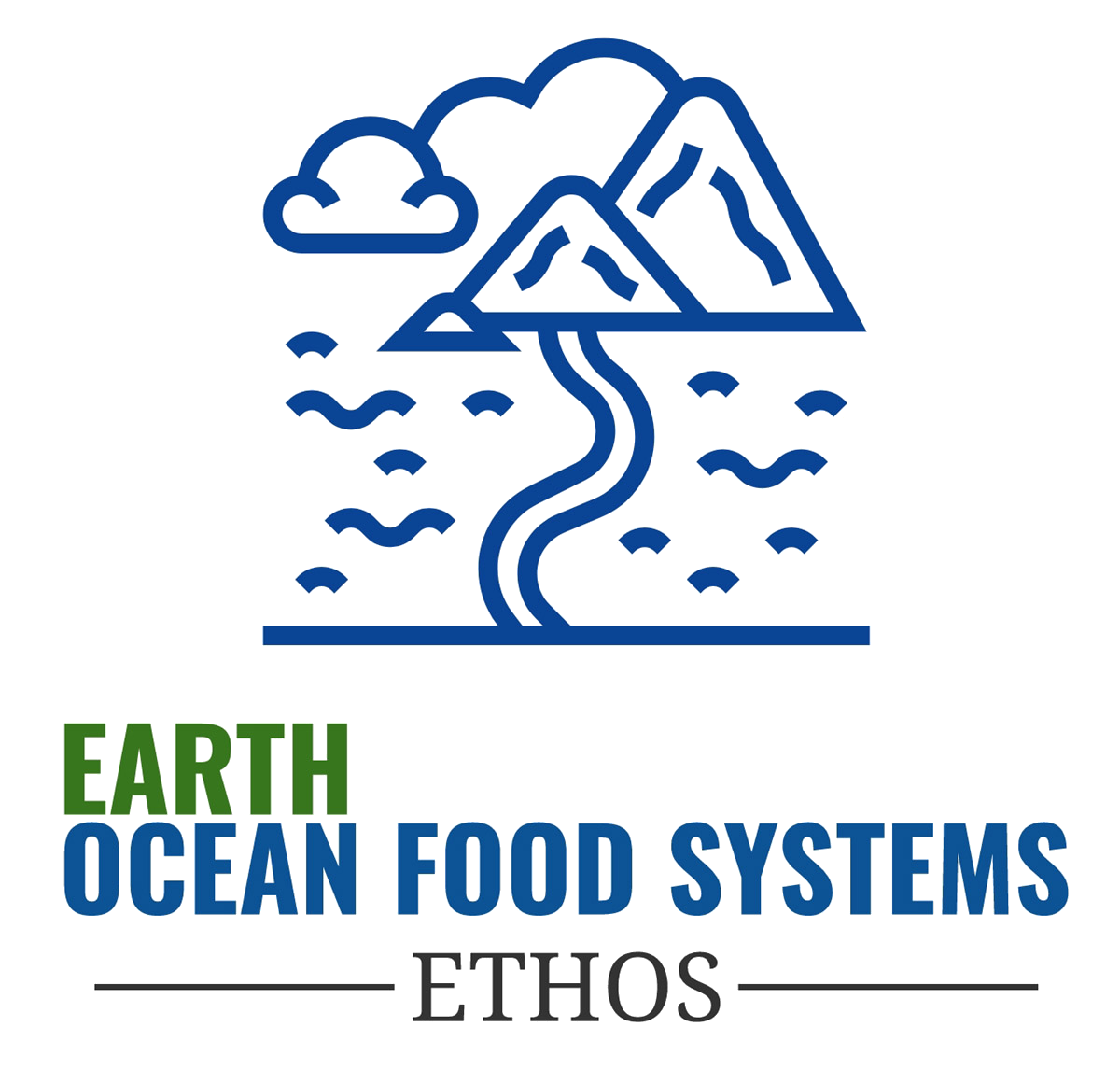
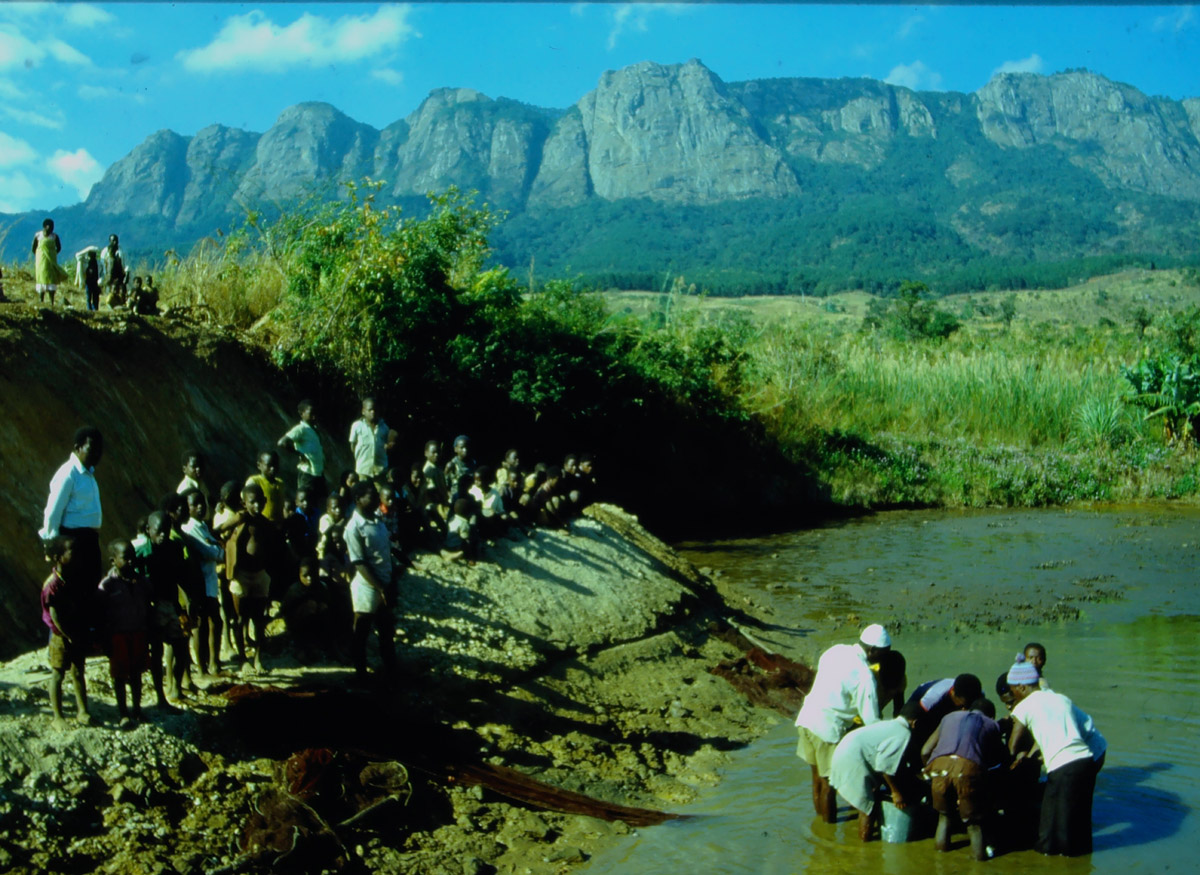 Community Based Aquaculture
Community Based Aquaculture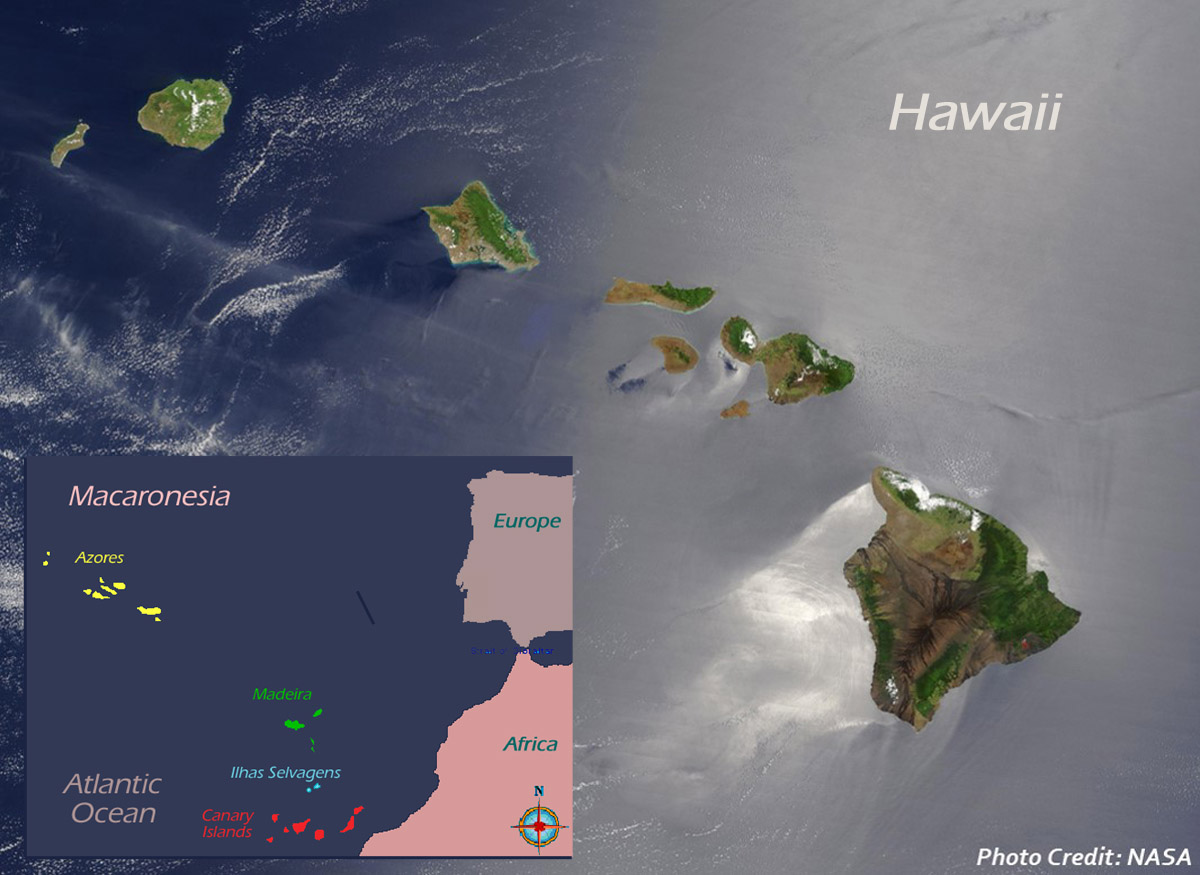 Small Island Developing States Become Large Ocean Food Nations
Small Island Developing States Become Large Ocean Food Nations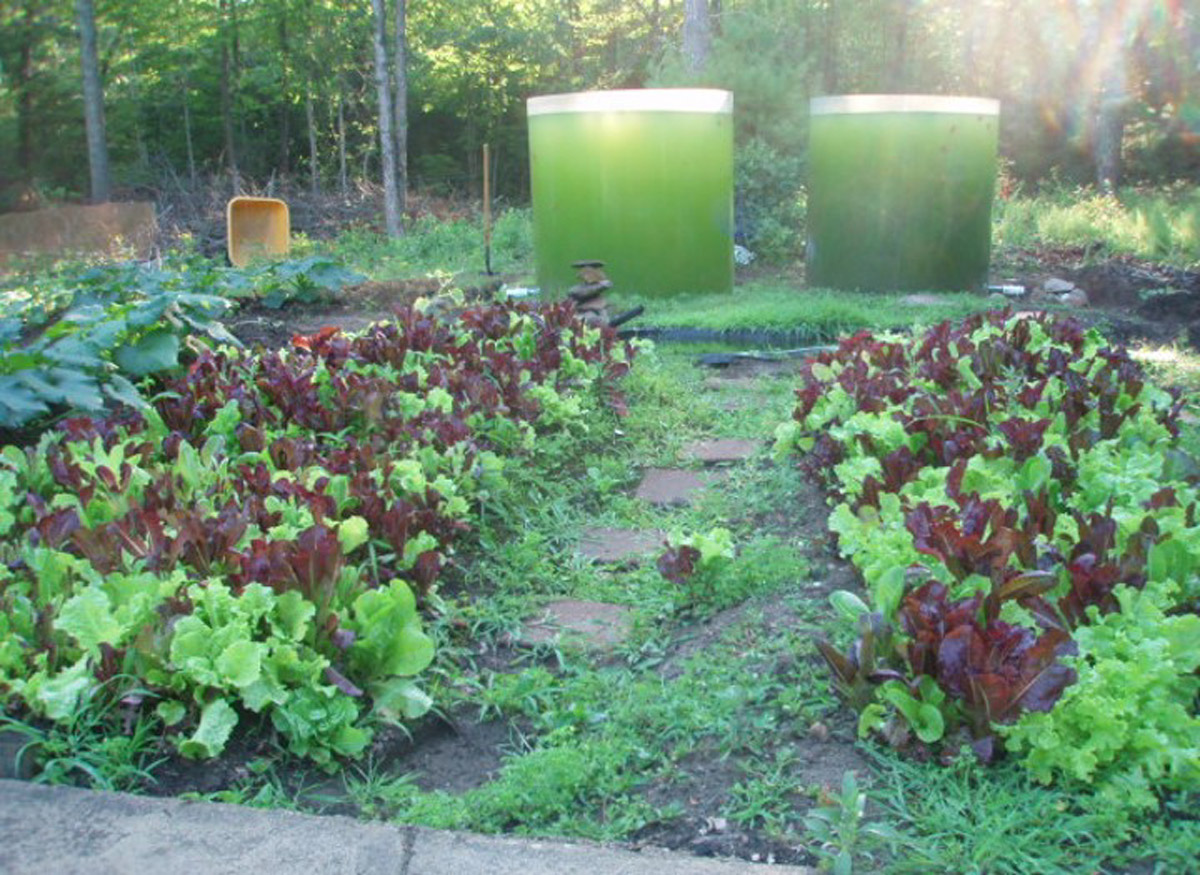 Algal/Microbial Biostimulants in Regenerative Agriculture
Algal/Microbial Biostimulants in Regenerative Agriculture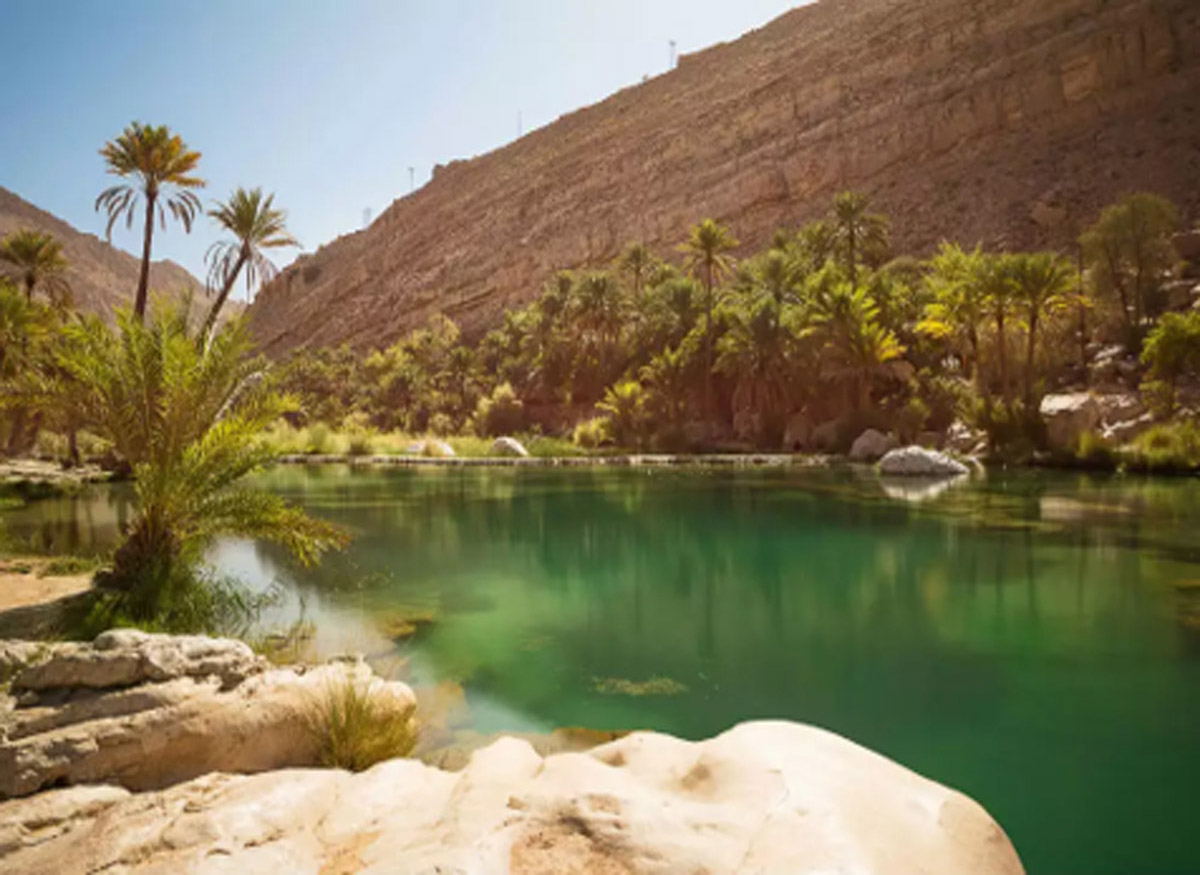 Integrated Aquatic Food-Energy Systems for Arid Lands
Integrated Aquatic Food-Energy Systems for Arid Lands